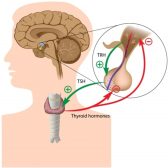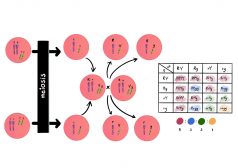Definition
noun, plural: small-scale mutations
(genetics) A type of mutation characterized by a change of one or few nucleotides of a gene
Supplement
Mutation is a change in the nucleotide sequence of a gene or a chromosome. It may be classified into various ways. One of these classifications involves classifying mutations based on the effect of mutation on the gene structure: (1) small-scale mutations and (2) large scale mutations.
Small-scale mutations are a type of mutation where one or few nucleotides of a gene are affected. These are further classified into substitution mutations, insertions, and deletions. Substitution mutations are a type of mutation in which a single nucleotide is substituted with a different nucleotide. They are further typified into silent mutations, missense mutations, and nonsense mutations). Insertion mutations are mutations caused by the addition of one or more extra nucleotides into the DNA. Deletion mutations are a type of mutation wherein one or more nucleotides are removed from the DNA. When there is only one nucleotide involved in substitution insertion, and deletion, it is particularly referred to as a point mutation.
Small-scale mutations may result in an altered sequence of amino acid during translation. One possible outcome of such mutation is to render the newly synthesized protein ineffective.
Compare:
- large-scale mutation
See also:







